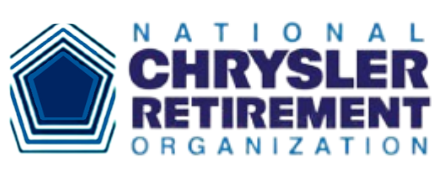Traveling abroad is an exciting experience, but managing your money wisely can make or break your trip. One of the biggest questions retirees and travelers face is: Should I exchange currency before I leave, or should I rely on ATMs at my destination?
For members of the National Chrysler Retirement Organization (NCRO), making informed financial decisions is key to enjoying a stress-free retirement. Let’s break down the pros and cons of each option so you can decide what’s best for your next adventure.
Option 1: Exchanging Currency Before You Travel
Exchanging money before your trip means visiting a bank, credit union, or currency exchange service to get foreign cash in advance.
Pros:
✔ Convenience – You arrive with local currency, avoiding the hassle of finding an ATM right away.
✔ Budget Control – You know exactly how much you’ve converted, helping you stick to a spending plan.
✔ Avoid Airport Fees – Airport exchange kiosks often have poor rates; getting cash beforehand can save money.
Cons:
❌ Less Competitive Rates – Banks and exchange services may charge higher fees or offer worse rates than ATMs abroad.
❌ Risk of Loss or Theft – Carrying large amounts of cash makes you a target for pickpockets.
❌ Leftover Currency – If you don’t spend it all, you may lose money converting it back.
Best For:
Travelers visiting countries where cash is still king (like Japan or smaller towns in Europe).
Those who prefer having money ready upon arrival.
Option 2: Using ATMs Abroad
Withdrawing local currency from ATMs at your destination is often the most cost-effective method.
Pros:
✔ Better Exchange Rates – ATMs usually offer rates close to the interbank rate (the best available).
✔ Convenience – ATMs are widely available in most tourist destinations.
✔ Safety – You carry less cash at once, reducing theft risk.
Cons:
❌ ATM Fees – Your bank and the foreign ATM may charge withdrawal fees (though some banks reimburse these).
❌ Foreign Transaction Fees – Some banks charge an extra 1-3% per withdrawal.
❌ Potential Card Issues – Your card could be blocked if you don’t notify your bank of travel plans.
Best For:
Travelers visiting countries with strong banking systems (Europe, Australia, Canada).
Those who prefer not to carry large sums of cash.
Tips to Save Money on Foreign Currency
Choose the Right Bank – Some banks (like Charles Schwab or Capital One) reimburse ATM fees and don’t charge foreign transaction fees.
Avoid Dynamic Currency Conversion (DCC) – When using a card abroad, always choose to pay in the local currency, not USD, to avoid extra fees.
Notify Your Bank – Prevent your card from being frozen by alerting your bank about your travel plans.
Carry a Backup Card – Have a second debit or credit card in case one gets lost or blocked.
Mix Both Methods – Exchange a small amount before leaving for immediate expenses, then use ATMs for the rest.
Notify your bank or credit card company before traveling!
One crucial step many travelers overlook is notifying their bank or credit card company before traveling. If your financial institution detects foreign transactions without prior notice, they may freeze your card for suspected fraud—leaving you without access to funds at a critical moment. A quick call or online alert to your bank can prevent this hassle. Most banks allow you to set travel notifications through their app or website, specifying your destination and travel dates. This simple precaution ensures smooth transactions abroad, so you can focus on enjoying your trip rather than resolving card issues.
Final Verdict: ATMs Usually Win
For most travelers, withdrawing cash from ATMs abroad is the smarter choice due to better exchange rates and convenience. However, having a small amount of local currency before arrival can ease stress, especially in cash-heavy destinations.
As an NCRO member, you’ve worked hard for your retirement—make sure your travel money strategy keeps more cash in your pocket for the experiences that matter!
Safe travels and happy adventures!



